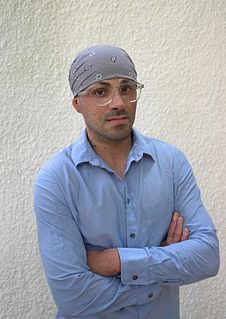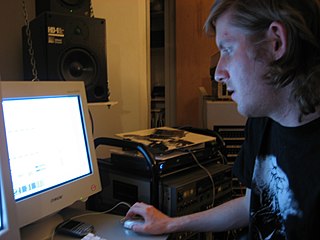A Quote by Elad Lassry
I used to refer to my photos as free radicals - and maybe that has to do with this idea of navigating history. I think of the works as having this dormant illness that can really latch on to different histories. So they can exist in a world pretending to be neatly encapsulated, already framed, and fixed. But actually they are these parasites dependent on the failure of modernist history and on multiplicity.
Related Quotes
I am opposing it with an idea of the history of philosophy as a history of philosophers, that is, a history of mortal, fragile and limited creatures like you and I. I am against the idea of clean, clearly distinct epochs in the history of philosophy or indeed in anything else. I think that history is always messy, contingent, plural and material. I am against the constant revenge of idealism in how we think about history.
Our world is not an optimal place, fine tuned by omnipotent forces of selection. It is a quirky mass of imperfections, working well enough (often admirably); a jury-rigged set of adaptations built of curious parts made available by past histories in different contexts. A world optimally adapted to current environments is a world without history, and a world without history might have been created as we find it. History matters; it confounds perfection and proves that current life transformed its own past.
The words represent ideas first of all. That is something you have to understand. I mean, it is not just an object, but it is an object with a history and it is loaded with all kinds of implications and ideas. They exist in the world in a very special way. So they kind of represent some aspect of the world that we perceive, as do photographs, as do drawings of trees or whatever. And they are not a one to one. They are not the world, but they kind of refer to the world and they also exist in the world.
I think that one of the ways that Americans will come to want to look at history is by looking at their own families' histories, and how those stories relate to the larger picture of American history. Then it is no longer abstract. Then it becomes a story that really means something to us as individuals.
I feel history is more of a story than a lesson. I know this idea of presentism: this idea of constantly evoking the past to justify the present moment. A lot of people will tell you, "history is how we got here." And learning from the lessons of history. But that's imperfect. If you learn from history you can do things for all the wrong reasons.
The Greeks really believed in history. They believed that the past had consequences and that you might be punished for the sins of your father. America, and particularly New York, runs on the idea that history doesn't matter. There is no history. There is only the never-ending present. You don't even have your family because you moved here to get away from them, so even that idea of personal history has been cut at the knees.
I think comedy allows people to accept the more difficult parts of history. And history, if it's presented wrong, is just very depressing, particularly the history of slavery. If slavery is presented properly, it's a great story. But I think that within the commercial world of storytelling in which I live, there haven't been many strong works that discuss slavery in ways that are palatable and funny and interesting to the reader.
I think about my art works as paintings, because they refer to the history of painting. I also have to think about them as sculptures, because every part of the process is part of the project. They're sculptures because they play on the idea of what should be hanging in a gallery. In that sense they're also kind of ready-mades.
I've always been a history buff. It was one of the few subjects at school that really, really caught me. I think you'll find a lot of actors will be interested in history because it sparks your imagination so much. When you enter a period of history, your imagination just goes wild in creating the world, which is really what acting is.































